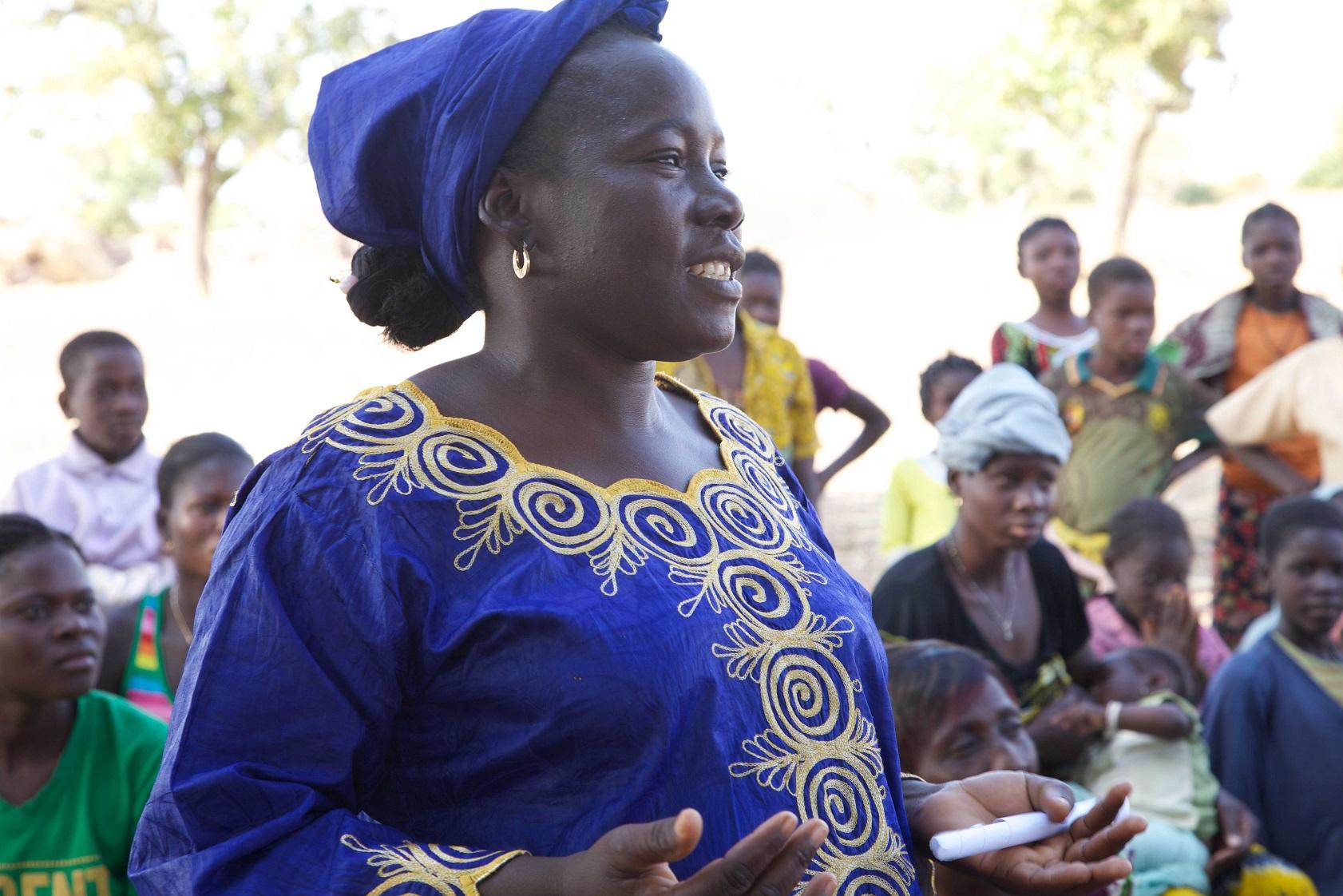The “founding myth” of how and why an Inclusive Business was founded is a compelling tale that can illustrate its purpose and emphasize its social impact.
A persuasive and powerful story can form the basis of an investment pitch.
Storytelling can also help entrepreneurs find like-minded partners to expand their reach and visibility.
Capturing a range of voices forms a critical element of monitoring social impact, which can lead to new approaches or changes in decision-making.
Content creation can help attract a new generation to fields like farming and in turn help them connect with their audience.
Aspirational stories can bring new opportunities to marginalized groups

Storytelling helps humans make sense of the world.
Storytelling can help entrepreneurs find a wider audience, scale their business and develop their brand. “Don’t forget that your organization has its own story – its founding myth. An effective way to communicate transcendent purpose is by sharing that tale,” Paul J Zak reminds us in the Harvard Business Review. The “founding myth” of how and why an Inclusive Business was founded is a compelling tale that can illustrate its purpose and emphasize its social impact. For example, Farmer on Fire founder Wangari Kuria became passionate about introducing youth to farming in Kenya after losing her job in law; she now shows young farmers how to develop their brand through digital media.
Amru Rice, a Cambodian rice company, tells the stories of the smallholder farmers they work with in order to illustrate their purpose. “We learned that the story behind the brand and the company is important. It clarifies the pathways that led to where we are. Oftentimes, the person behind the business provides the initial human interest before the product.” Amru’s CEO has also used impact stories to inform buyers and business networks how their business model works and how it benefits farmers.

Amru Rice tells stories of the people they work with.
A persuasive and powerful story can form the basis of an investment pitch. Honing these stories is critical in order to quickly grasp the attention of investors, particularly in the impact investment field, when an entrepreneur may only have a few minutes to catch the attention of an investor.
“Effective and impactful storytelling helps the rest of the world understand and engage with your mission. It not only opens new investment opportunities, but it also attracts new partnerships and alliances as well as recruiting new employees,” Maria Correa of B-Lab Europe tells us in this issue of CLUED-iN.
Storytelling can also help entrepreneurs find like-minded partners to expand their reach and visibility. Findjobs was developed as a multilingual job search app in Singapore targeted towards low income workers. Storytelling has helped Findjobs identify new institutions to partner with, thereby expanding their reach and providing more opportunities to marginalized groups. “We have managed to secure more partnerships with institutions focused on inclusive employment. Concurrently, we also run a co-working space for persons in recovery (PIR) where we developed a sustainable job placement programme with partners such as Institute of Mental Health (IMH). We also work with grassroots and voluntary groups to build mobile applications for their beneficiaries such as persons with incarceration experience (PIE) and low-income caregivers,” says co-founder Stanley Lim.

Entrepreneurs need to tell their stories.
Capturing a range of stories and voices is also a critical element of monitoring the social impact of a business, which can lead to new approaches or changes in decision-making. For example, while working with farmer associations in Africa, Voices That Count developed “narrative impact monitoring,” which allows farmers to raise their own concerns rather than answering predefined questions. “The collection process itself is equally as important as the results and insights generated,” founders Nele Claeys and Steff Deprez write in their blog, explaining how starting with farmers’ stories allows patterns to be found without leading the narrative in a particular direction.

Storytelling can make voices heard.
How do you attract the attention of the youth, or help marginalized groups find their way to new careers? In these instances, leveraging new types of media and different approaches is particularly valuable. In Kenya, Wangari Kuria began introducing young people to farming techniques while also teaching them digital marketing concepts, relying on YouTube to tell eye-catching stories that change the perception of farming. “We encourage farmers to leverage digital media to share their progress and to showcase their brand. This in turn helps them to be identified with it, leading to a ready market.” Content creation can help attract a new generation of farmers and in turn help them connect with their audience. In the long run, this addresses larger issues: “Our goal is to have a movement of young farmers, changing communities, policy and increasing food security in the country and beyond.”

Wangari Kuria seeks to inspire young farmers.
The right story can also help inclusive businesses attract new customers and connect them to new professional opportunities. For example, Empower Pragati uses stories to inspire women to join training classes to start second careers as beauty salon owners. Many women in rural India have been discouraged from working and may have been unable to work when their children were small. Hearing the stories of women they can identify with can prove inspirational. “Women who are learning about these stories come from similar economic and social backgrounds, and have similar aspirations to the one whose journey we have captured, and so these stories act as a much needed nudge in their lives,” writes Mrinal Kant of Empower Pragati in his blog. Additionally, for businesses without a large advertising budget, stories and videos can help reach a wider audience while being cost effective.
Stories can inspire, teach and change perceptions. By sharing the voices of marginalized groups, Inclusive Businesses can expand their visibility and social impact while providing new opportunities and finding like-minded investors and partners. A common vision and compelling story can form the guiding narrative of an Inclusive Business.

Incluisve Businesses can increase the visibility of their stories.
- Acumen course on stotytelling
- ICA guide on how to tell your impact story
- iBAN Pitching Toolkit
Photo credits
- Female farmer: © Farmer on Fire
- Filming interview: © GIZ/Susann Tischendorf
- Two African men: © Rikolto
- African woman talking in front of group: Jessica Lea/DFID (CC BY 2.0)
- Group photo: © Amru Rice
- African writer: dmaxjr0 on Pixabay (Pixabay License)
- Diversity masks: George A. Spiva Center for the Arts (CC BY 2.0)
- Wangari Kuria: © Farmer on Fire
- African boy: Patrick Bentley/SolarAid (CC BY 2.0)



